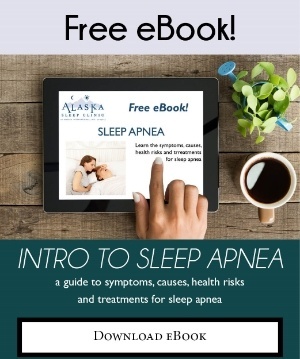
Importance of sleeping in childhood
Children require adequate sleep as it contributes to improved behavior, learning retention, memory, and attention. It also leads to better mental and physical health. According to the American Academy of Pediatrics, approximately 25 to 50 percent of children struggle with sleep problems. As a parent, you should understand your child’s sleep needs by practicing better sleep hygiene, and appropriate sleep routine, and addressing sleep disorders.
To children, sleep plays an integral role in their development. Slumber has a direct impact on cognitive performance, mood, alertness, attention, and resilience. Infants are encouraged to sleep for long hours as sleep plays a role in their growth. Additionally, sleep helps in motor skill development, memory consolidation, and executive attention.
Negative Consequences of lack of sleep for children
Children who do not get enough sleep are susceptible to diseases like obesity, depression, and high blood pressure. Sleepiness can affect the ability of a child to pay attention which can affect their school performance. It can also disturb their capacity to perform day-to-day activities. Poor sleep patterns in infants can lead to allergic rhinitis, anxiety, depression, and immune system problems. It may also lead to future cardiovascular risks that cause high blood pressure, diabetes, and obesity.
Importance of good night rest in adulthood
1.Boosts mood:
Sleep has a close relation to mental health, and they impact each other. If a person fails to get enough of it, they can develop mental health problems. These conditions can cause poor sleep quality. Slumber ensures that you maintain a great mood so that you can engage in various activities. Moodiness and sluggishness depict a deprivation of it.
2. Lowers risk of diseases:
Insufficient sleep stresses the body, which leads to a weak immune system and inflammation. Consequently, it increases your risk of contracting fatal illnesses like diabetes, cardiovascular conditions, and obesity. When a person gets slumber, the body gets enough rest. Also, it undergoes restoration functions such as protein synthesis, muscle growth, and tissue repair that play a huge role in strengthening the immune system.
3. Supports weight maintenance:
Quality sleep helps your metabolism to progress at a healthy rate and assists you in sustaining weight. Slumber also regulates ghrelin which is the hormone that stimulates your appetite. When a person is sleep-deprived, their metabolism slows down, and this leads to unhealthy weight gain.
4. Improves memory and concentration:
Getting a good night’s sleep helps to keep the memory sharp and the brain healthy. Sleep deprivation affects the attention span and short-term memory. It also weakens the ability of a person to make decisions. Additionally, insufficient slumber time can lead to memory loss and increase the likelihood of developing dementia.
Negative consequences of lack of sleep for adults
Impact on the central nervous system:
The body requires plenty of sleep to help it to function efficiently. However, chronic insomnia can inhibit how your body processes information. Sleep deprivation exhausts your body. Therefore, it impedes how it performs its duties. It also becomes hard to concentrate, and the body signals delay. Consequently, it decreases dexterity and increases the risk for accidents.
2. Impact on immune system:
When a person sleeps, their body produces infection–fighting substances like cytokines and antibodies to fight bacteria and viruses. Sleep deprivation prevents your immune system from fighting off foreign bodies.
3. Respiratory system:
Sleep can affect your respiratory system more so if you have a nighttime disorder known as obstructive sleep apnea. The condition lowers your quality of sleep and interrupts the slumber pattern that you are accustomed to. It can contribute to respiratory infections such as flu and the common cold.
Growth hormone secretion and sleep
The pituitary gland produces the Human growth hormone chemical. It plays a role in body composition, growth, metabolism, and cell repair. Low HGH levels may increase your risk of diseases and lower your quality of life.
HGH is released in large pulses when an individual sleeps, with the large pulses occurring before midnight while smaller pulses circulate during the morning hours. Studies indicate that poor sleep can contribute to the low production of it in your body. If you want long-term production of the hormone, ensure that you are getting plenty of slumbers. In proven HGH deficiency cases there may be prescribed injections or other supplements. To buy Humatrope, for instance, injections you may need legal prescription.
HGH boosts muscle growth. Additionally, it increases exercise performance which helps you to recover from illnesses and injuries. If you have low growth hormone levels, you have a high chance of contracting diseases. Sleep can highly affect your growth hormone levels. Therefore, ensure that you get plenty of it if you want to be healthy.
Melatonin hormone secretion and sleep
Melatonin is the sleep hormone. The body generates it in the evening, and so it leads to healthy sleep. Darkness prompts the pineal gland to begin producing it, and light causes its production to stop. Melatonin regulates the circadian rhythm, thereby synchronizing the sleepy wake cycle.
The body produces the chemical, but people prefer external sources and buy supplements to help them sleep. Melatonin is known to improve sleep in children and adults. It helps people with sleeping difficulties to sleep more quickly.
Why do we need to get enough sleep every day
You should get plenty of sleep every day so that you can be healthy. Sleep affects how your body functions and how you handle daily routines. Experts recommend that adults get at least 8 hours of uninterrupted sleep. This article highlights how sleep can improve your immune system and help you fight illnesses such as the common cold. Poor sleep patterns can also lead to anxiety and depression. When you sleep less than 8 hours, you increase your chances of getting illnesses such as heart disease and others.
Conclusion
Deep sleep will improve your performance and effectiveness over the long run while reversing conditions that are caused by sleep deficiency. Sleep deprivation is affecting a significant number of people across the world. If you are one of them, practicing what you’ve read here will change your life completely. Start today by calling Alaska Sleep Clinic! You have nothing to lose.












